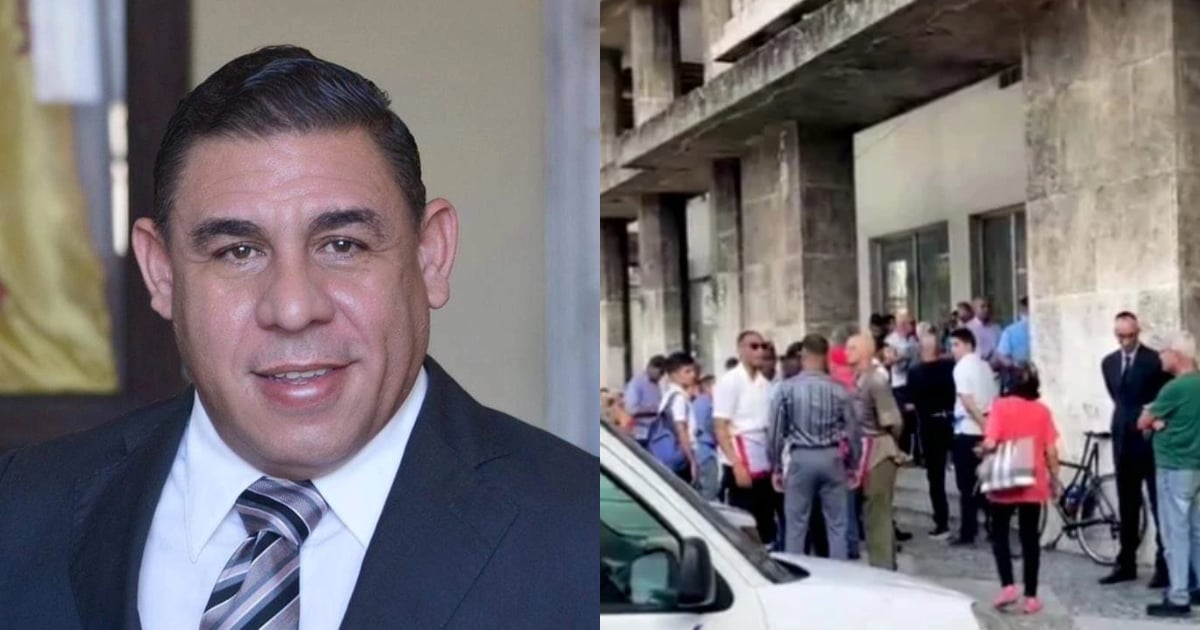
The Grand Master of the Lodge of Cuba, Mario Urquía, sent a message on July 24 to the nearly 200 Cuban masons who protested the day before in front of the Grand National Masonic Temple, demanding his resignation. In a message accessed by Cubanet, Urquía criticized that some members of his jurisdiction placed their personal interests "above the interests of the Institution." Additionally, he noted that the demonstration began in front of the building and ended in the lobby on the 11th floor, in front of the Grand Master's office.
Nevertheless, Urquía acknowledges that it was a peaceful protest. "It is my duty to express that there was no violence whatsoever despite entering through the main door of the Grand Temple in the presence of many of my brothers," he wrote in the note sent to all Freemasons.
Moreover, he criticized that "the claims made within the supposed Masonic laws" were not carried out in accordance with their "precepts and oaths."
Urquía highlights in his letter that representatives of the Supreme Council were present at the protest, among whom he singled out Ángel Santiesteban Prats, whom he accused of having a "protagonist role in the discrediting campaign and the distortion of the facts." He refers to Urquía's refusal to comply with his expulsion, decreed by the Supreme Council in January of this year, following the theft of 19,000 dollars from his office. In March, he attempted to preside over the session of the Upper Chamber, and he was prevented from doing so amidst shouts of "out, traitor and coward." Most of his team resigned from their positions.
In his letter, Urquía attacks independent journalist Camila Acosta, whom he accuses of controlling information that "a layperson" should not have access to. And at this point, he refers to the alleged infiltration of dissident elements among the Freemasons. "There have been clear signs from some brothers of directly attacking government institutions with marked political positions, which for many are disguised as supposed Masonic reasons," he stated.
Urquía expressed openness to masons presenting complaints, but always within official channels. He appeared upset about the fact that the internal problems of the Grand Lodge of Cuba have been "mediated." In that context, he called on masons not to participate "in any conspiracy." "Let us not allow internal enemies to use us to achieve goals that have nothing to do with Fundamental Precepts and put our existence at risk. This Grand Mastery will defend the permanence of our august Institution above any personal or political interest. Let us resolve our problems internally and in accordance with Masonic laws, not through social networks or media," he requested.
According to testimonies collected by Cubanet at the protest in front of the Grand Lodge of Cuba, the Freemasons explained that they were there protesting after the Ministry of Justice of the Island rehabilitated Urquía after he was expelled from his position for "attacking morality" and "for treason against his principles." Therefore, the protest was not only against the Grand Master but also against the regime's interference in the internal affairs of Cuban Freemasons.
They also explained that they had gathered there after exhausting all avenues to be heard. The trigger was decree 1791 of July 19, with which Urquía suspended the Treaty of Friendship and Mutual Recognition between the Grand Lodge of Cuba and the Supreme Council. In this way, he jeopardized two centuries of Masonic unity and peace, as it forces Freemasons to choose between one institution or the other and endangers the international recognition of the Cuban order.
On the same July 23, the Ministry of Justice of Cuba issued an informational note in which it stated that it had detected "irregularities due to non-compliance with its internal statutes" following the expulsion of the Grand Master and therefore ordered "to carry out those processes again in accordance with the statutes and the will of its members."
Finally, the Cuban government yielded to protests from the Freemasons and agreed to hold elections. This is an unprecedented event in the history of Cuban Freemasonry, which included demonstrations against the Grand Master of the Order, who was expelled for corruption and reinstated by the regime for being loyal to it.
What do you think?
SEE COMMENTS (2)Filed under: